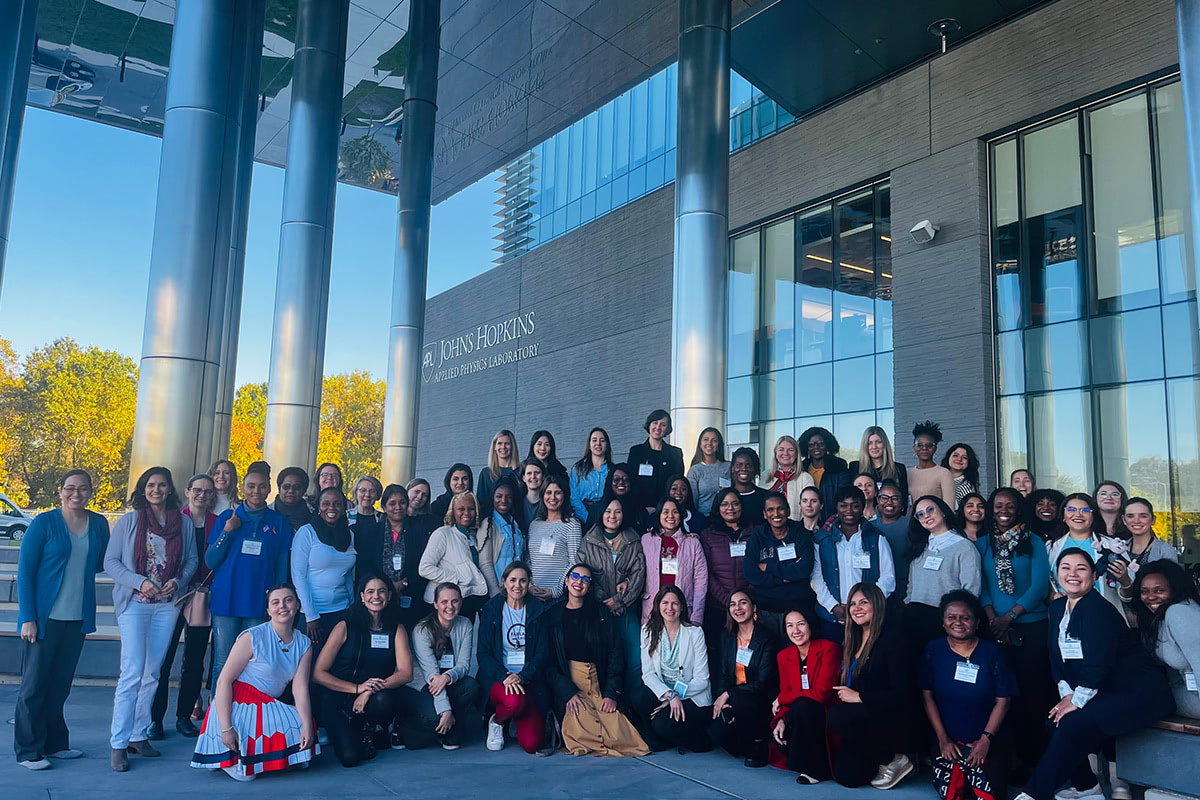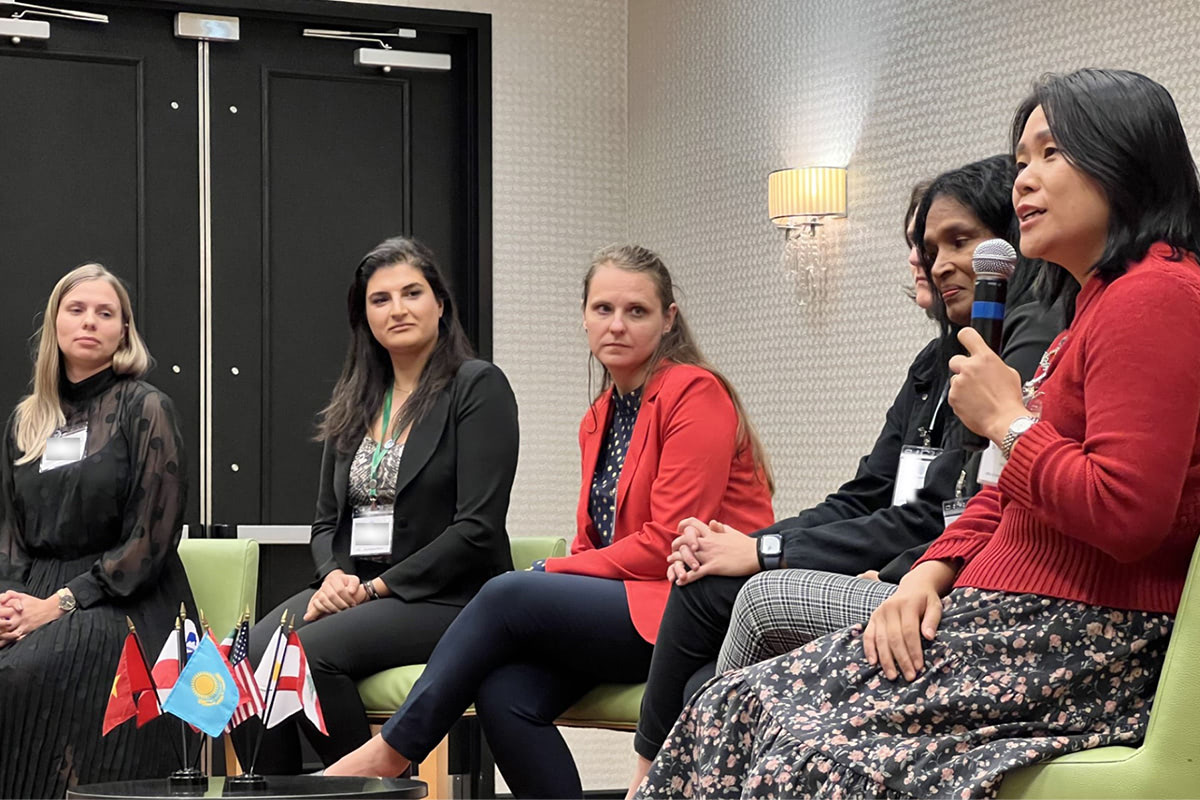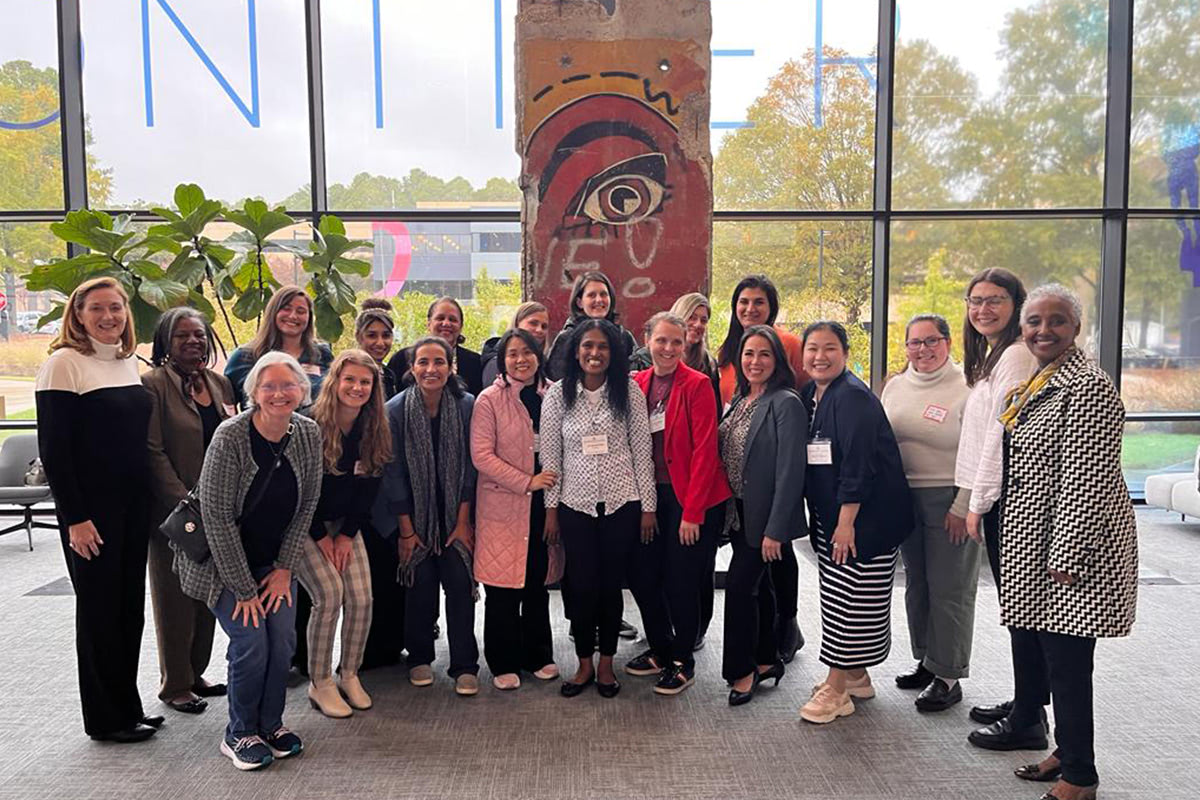Representing Lebanon at the Helm of STEM
Dr. Rana Rizk plans to inspire the next generation of women in Lebanon to pursue and contribute to STEM fields.
Assistant Professor of Nutrition and Coordinator of the Nutrition Program Rana Rizk, whose research has been largely devoted to women’s issues, was invited to represent Lebanon in the “Hidden No More: Empowering Women Leaders in STEM” International Visitor Leadership Program (IVLP), led by the US Department of State’s Bureau of Educational and Cultural Affairs, between October 21 and November 11, 2023.
The program gathered 46 women leaders in science, technology, engineering and mathematics (STEM) from across the globe to address the barriers to women’s advancement in STEM, recognize and value the power of personal narratives and experiences and create a network of women leaders. It held sessions in Washington DC, Durham, Boston and Los Angeles.
Over three weeks, the project focused on reviewing the trajectory of women in scientific research and innovation in the US. Not only did it delve into policies championing women in STEM within organizations and educational institutions, but “it also emphasized their role in designing, engineering and implementing scientific solutions,” said Dr. Rizk.
“The project underscored the significance of women’s involvement in research and technology and offered networking opportunities with professionals in various sectors across the US,” she added.
Participants also examined the challenges faced by women in the field—from gender bias, representation gaps and limited resources to insufficient mentorship—and highlighted strategies for individual success, which entail mentoring women scientists and ways that individuals can contribute to promoting systemic change.
The workshops, panel discussions and interactions with STEM leaders and professionals across the US explored public-private partnerships to enhance education for girls from diverse backgrounds and implement policies promoting gender equality and inclusivity while actively combating stereotypes and biases.
“These interactions facilitated the exchange of ideas, best practices and strategies to address the identified challenges at both personal and institutional levels,” noted Dr. Rizk. “Through shared narratives, and as part of the Career Advancement and Negotiation Techniques workshop that we attended, this will significantly influence my approach to leadership and advocacy by reinforcing the need for amplifying diverse voices, cultivating mentorship relationships and leveraging personal stories to inspire and empower others.”
Among other women leaders, Dr. Rizk showcased the strides made by Lebanese women in their domains. Confronting prejudices within the STEM communities, she highlighted individual accomplishments and interdisciplinary work that women bring to the global and local STEM landscapes.
Looking ahead, Dr. Rizk plans to use her experience in the program to initiate mentorship programs and actively participate in local and international collaborations in order to create more opportunities for women pursuing education and careers in STEM.
“I aim to convey to the community and aspiring women in STEM the significance of grit, resilience and collaboration,” she said. “By sharing experiences and promoting inclusivity, my goal is to inspire the next generation of women in the country to join the nutrition and health technology assessment (HTA) field, pursue their research and careers in STEM and make meaningful contributions to the local, regional and global scientific community.”
Their diverse voices and unique insights in healthcare research and innovation will ultimately lead to improved health outcomes for individuals and communities and rationalize health expenditures in Lebanon and the Arab region, she added.

